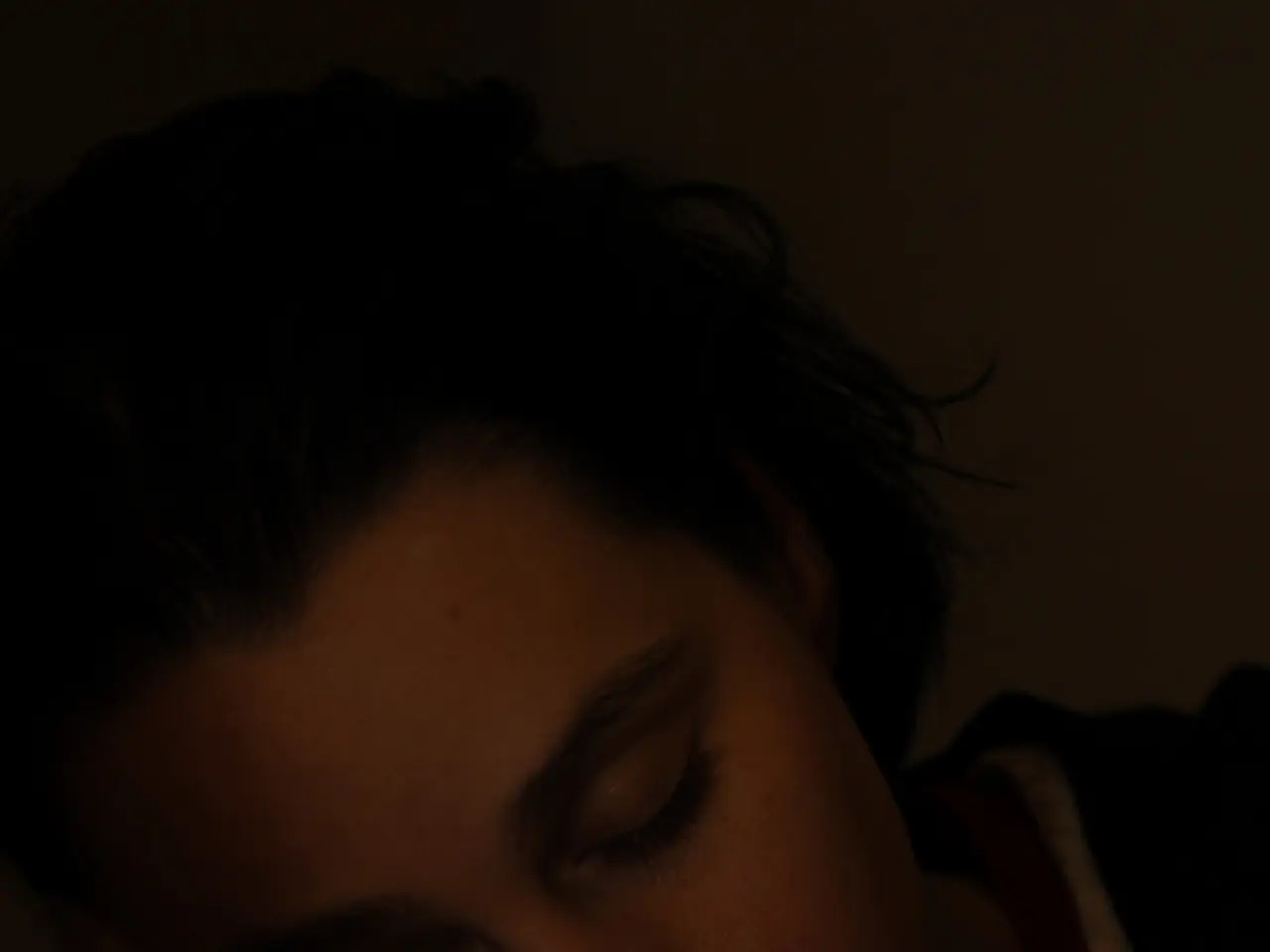AI-recommended sleep mantra to induce instant sleep, as claimed
In the quest for a restful night's sleep, artificial intelligence (AI) is proving to be a valuable ally. AI models like ChatGPT, Gemini, and Copilot have suggested several effective sleep induction techniques that go beyond simple physical relaxation tactics.
One such technique is the body scan exercise, a mindfulness technique that involves bringing attention to different parts of the body to recognise tensions and release them. This practice promotes the body-mind connection and reduces anxiety, making it easier to fall asleep.
Another technique is counting, a simple and effective concentration exercise that helps divert the mind from stressful thoughts or daily worries. Counting backwards from 100 to 1 can be particularly helpful in this regard.
Visualisation, a powerful technique that uses imagination to create a state of calm and relaxation, is another method AI models recommend. This involves bringing attention to all senses to create a detailed and immersive imaginary scene, be it a peaceful forest or a tranquil beach. Visualising such a scene can help create a calming effect and promote sleep.
Deep breathing, known as "4-7-8 breathing", is another technique that reduces heart rate and blood pressure, helping to relieve stress and anxiety. The process involves inhaling slowly for four seconds, holding the breath for seven seconds, and then exhaling slowly for eight seconds.
It's worth noting that there is no magical phrase that guarantees instant sleep. However, repeating short mantras can help create a state of calmness. AI models suggest phrases like "I am at peace, everything is fine," "My body relaxes, my mind turns off," "I breathe slowly, I let myself go," "Nothing disturbs me, everything is calm," and "I don't think, I only rest."
The military method for sleeping in two minutes is another technique AI models recommend. This involves repeating the phrase "Don't think, don't think, don't think..." mentally for about 10 seconds while the body is completely relaxed.
Beyond these techniques, AI-powered soundscapes, cognitive behavioural therapy for insomnia (CBT-I), neurostimulation devices, and AI-guided self-hypnosis are other approaches that leverage technology and psychology to foster natural sleep induction.
AI-powered soundscapes, such as those offered by Endel, create personalised sound environments that reduce sleep onset latency by calming the nervous system and mimicking natural sleep cues. CBT-I, a proven, evidence-based approach effective for both short-term and chronic insomnia, restructures unhelpful thoughts and behaviours around sleep. Neurostimulation devices, like Modius Sleep, deliver gentle electrical pulses to the vestibular nerve to reset or stabilise sleep patterns, helping users fall asleep faster without medication. AI-guided self-hypnosis apps, like Reveri, provide fast-acting, personalised self-hypnosis sessions that reduce anxiety, pain, and sleep difficulties within minutes, drawing on decades of clinical research.
By focusing on modifying brain activity, cognitive patterns, and environmental stimuli, these approaches can help you sleep soundly and wake up refreshed, ready to tackle the day ahead.
Artificial intelligence (AI) also suggests integrating technology into sleep routines, such as using AI-powered soundscapes like Endel to create personalized sleep environments that mimic natural sleep cues.
The integration of artificial intelligence and technology in sleep therapy continues with AI-guided self-hypnosis apps, like Reveri, which offer personalized self-hypnosis sessions to reduce anxiety, pain, and sleep difficulties quickly, drawing on decades of clinical research.




